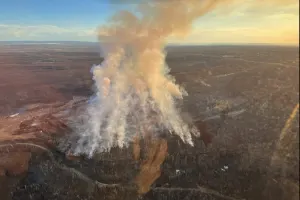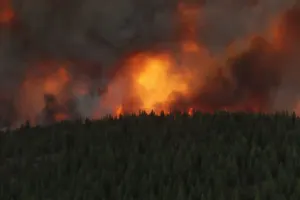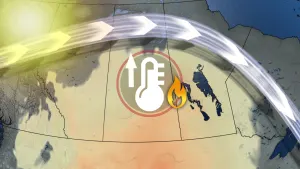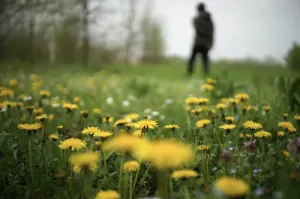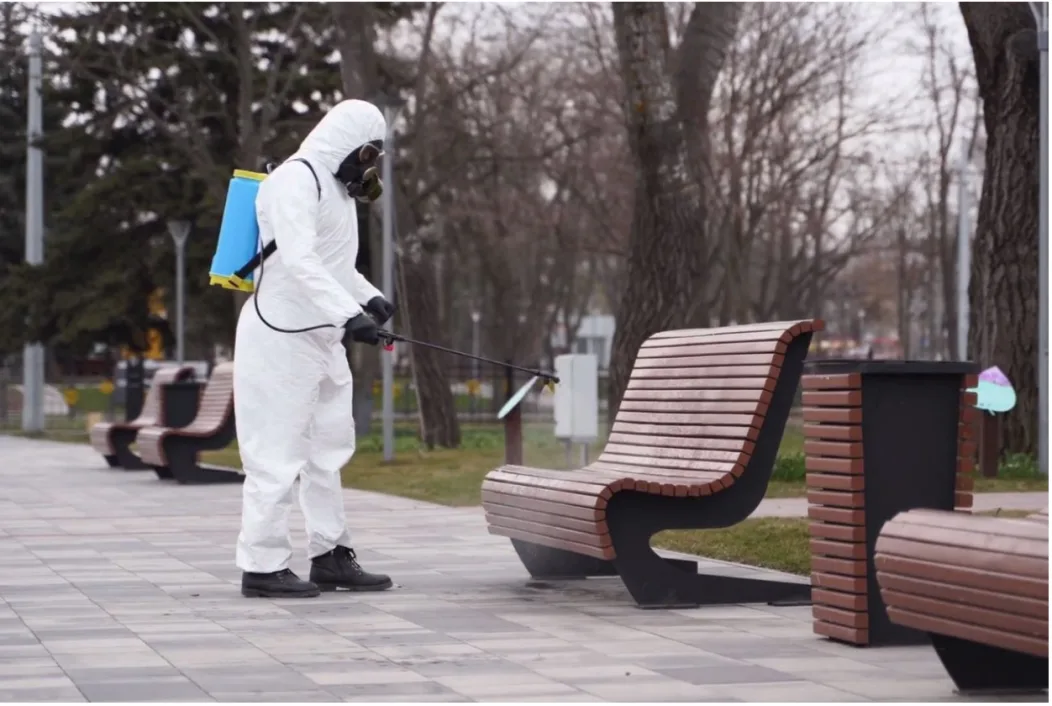
Does mass sanitization work against COVID-19? Is it worth it to our environment?
Mass sanitization not only seems wasteful, but it could also be harmful to the environment.
The scene is truly bizarre. People covered head to toe in protective gear spraying a bleach solution across public spaces in an effort to eliminate COVID-19.
I remember the first time I saw these images. I was shocked and intrigued. Firstly, it looked like something out of a movie. But on second thought, I was curious, “does that really work?”.
It not only seems wasteful in my opinion, but I also imagine it could be harmful to the environment.
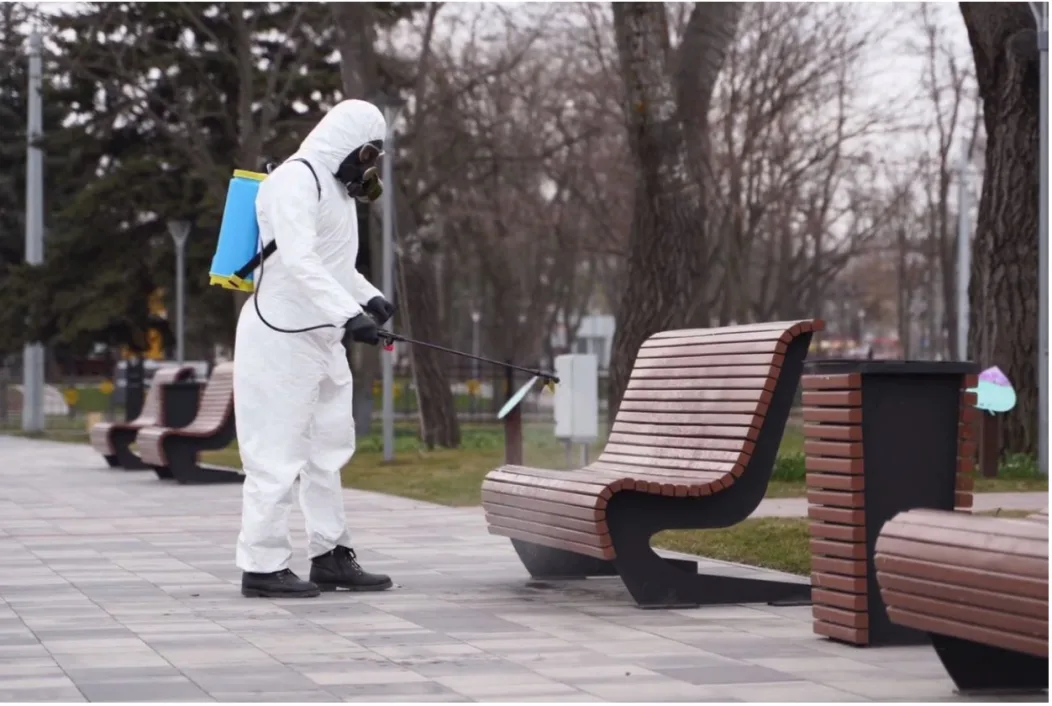
Courtesy: VideoBlock
As my curiosity built, I reached out to some health experts to get their take on the situation.
Dr. Keith Warriner, who is a microbiologist at the University of Guelph, sat down with me for a video chat where he chuckled at the thought of this mass sanitization killing COVID-19.
“I think this does a good job in cleaning the streets, but killing COVID-19, no.” Dr. Warriner told me. “This virus is spread from person to person, there has been some surface transmission, but it’s not a large concern.”
He continued that the idea of a “mass cleaning” is more symbolic than anything.
“It’s not based on science, it's based on people wanting to look like they are actually doing something,” he explained. “What people generally do is they fall back on what they think is right. To actually go outside and spray sanitizer sounds like a good idea because when we are at home and cleaning surfaces we spray surfaces. And this [mass cleaning] is the same thing, just on a grander scale.”
I thought his next point was particularly interesting and is something I have not read much about in the media when it comes to sanitization.
“In reality, spraying sanitizers in the streets is likely to lead to problems with irritating people’s eyes and potentially triggering asthma attacks in some,” cautioned Dr. Warriner.
WATCH BELOW: HOW LONG CORONAVIRUS LASTS ON SURFACES DEPENDS ON THE MATERIAL
Go here for our complete coverage of the COVID-19 pandemic
While using this bleach solution is effective when it comes to cleaning in your home, scientists are not backing up the idea of this being useful to stop the spread of COVID-19 in public spaces.
My next question about the impact these sprays have on ecosystems and animals led me to Dr. Ryan Prosser, an environmental toxicologist at the University of Guelph.
He was able to help me understand how bleach works, and the quick reaction time it has.
He explained that modest amounts of bleach (such as the amount we use at home) will react and then quickly lose toxicity -- so this is a positive in terms of not causing major harm to the environment. But on the other hand, he continued, if mass amounts of bleach are being released at once, not all of it may react -- and this poses a problem because it will go into the environment as an active chemical.
“If bleach (sodium hypochlorite) entered an aquatic system, it would be very toxic to aquatic species (e.g., fish, aquatic insects, zooplankton, algae),” he said. “A lot of bleach in a short period of time would be very bad.”

Courtesy: Rachel Schoutsen
RELATED: Don't microwave masks, warn officials
He continued, “In terms of terrestrial ecosystems -- if bleach was to get on the animal’s skin, in their eyes, in their lungs or was ingested, it would cause irritation that could cause permanent damage. Again, it all comes down to how much bleach they are exposed to at a given time.”
Overall, it seems like this practice is not very effective in limiting the spread of the virus and it does pose potential harm to ecosystems. After consulting with our experts it not only seems wasteful of the bleach solution but also of the time and effort it must take municipalities to coordinate something like this.
Countries like Italy have taken extreme measures in order to facilitate this mass sanitization. For example, in a viral video, they demonstrated how they transformed a snow gun into a device that sprayed sanitizer around a community. You can watch clips of that demonstration in the video that leads this article.
At this point, Canada has not used this practice in order to stop the spread of COVID-19.







